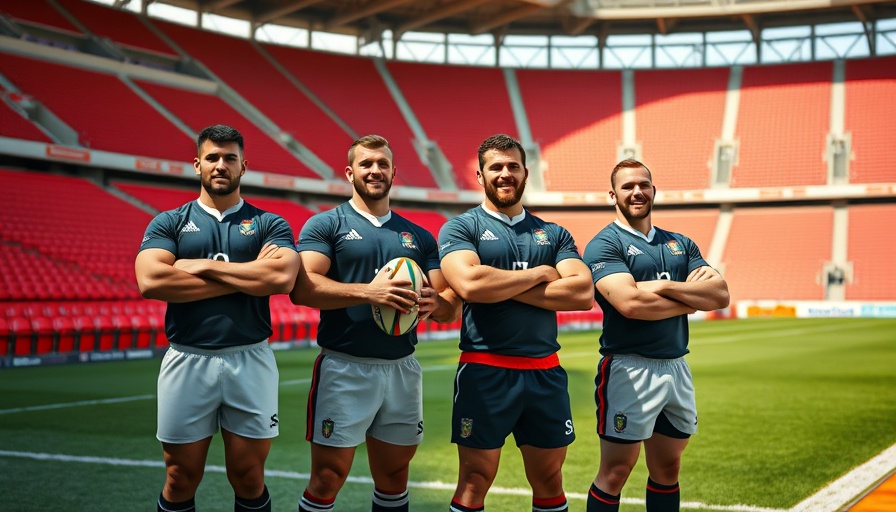
Wales’ URC Teams Set for Major Reform: What It Means for the Future of Rugby
In a significant shift for Welsh rugby, it has been announced that two teams will be cut from the United Rugby Championship (URC). This bold decision comes from the Welsh Rugby Union (WRU) and is aimed at restructuring the future of the sport in Wales. As the pressures of the modern game continue to escalate, the WRU believes that a streamlined approach is necessary to maintain competitiveness and ensure the longevity of Welsh rugby.
The Context of the Decision: Why Cut Teams?
Under the guidance of WRU director of rugby and elite performance Dave Reddin, the proposal to slash the number of URC teams from four to two aims to consolidate resources and harness talent more effectively. Each squad will look to carry around 50 players, complemented by a generous budget of approximately £7.8 million annually. This structured framework echoes trends observed in other sports, where consolidation has often led to increased competitiveness—similar to how Cricket South Africa has adapted its domestic structures to ensure success on a global scale.
Impact on Athletes: A Mixed Bag of Opportunities and Challenges
For athletes, this transition presents a blend of opportunities and uncertainties. The prospect of fewer teams might encourage a more intense competition for spots within the squads, as players vie for limited positions. However, this consolidation also signals a potential risk for those who find themselves without a team. The ambition here is clear: to elevate standards and enhance the calibre of rugby in Wales, but it is essential that support mechanisms are established for those affected players.
A Historical Look: Lessons from Previous Rugby Reforms
Reforms within professional sports, including rugby, have a rich history. The changes seen in Welsh rugby today draw parallels with similar scenarios faced by rugby unions across the globe. In South Africa, the shift from a tiered provincial structure to a broader Super Rugby competition in the 1990s aimed to improve international competitiveness. Over the years, however, challenges resulted in further adjustments, leading to today’s vibrant yet complex domestic structure. Welsh rugby can certainly glean insights from these histories of restructuring, learning from both successes and setbacks.
Current Teams’ Stance: Survival and Adaptation
The remaining URC teams have pledged to engage actively in the six-week consultation process initiated by the WRU, which aims to provide them a platform to advocate for their survival. This consultation reflects the ongoing commitment towards inclusivity in decision-making, a stark contrast to past reforms that may have seemed unilateral and hasty. The outcome of these discussions could irrevocably shape the future landscape of rugby in Wales.
Future Predictions: What Lies Ahead for Welsh Rugby?
As discussions unfold, the potential implications for Welsh rugby are immense. With two teams remaining, whether they will be established regions or new entities remains to be seen. Insights from observers suggest that creating new teams could bring fresh energy but may also challenge traditional loyalties among fans. Furthermore, should the restructuring succeed, it could enhance the performance of the Welsh national side, especially as they head into high-stakes tournaments like the Rugby World Cup.
Next Steps for Players and Fans: Staying Engaged
As Welsh rugby moves amidst these changes, it will be essential for players to remain engaged with their communities while also adapting to new team dynamics. Fans, too, play a crucial role—they can support their teams during this transitional period, fostering a positive environment as the realities of fewer teams set in. From a fans' perspective, engagement in community events and discussions about the future of rugby can help ensure that their voices are heard.
Call to Action: Advocating for the Future of Rugby
As these changes unfold, it's critical for athletes and fans alike to stay informed, engaged, and active in dialogues surrounding the future of Welsh rugby. By advocating for what they believe in, both groups can help shape a future that values tradition while embracing necessary change. As we look to the Rugby World Cup and beyond, let’s rally around the sport, supporting the evolution of rugby in Wales.
 Add Row
Add Row  Add
Add 




Write A Comment